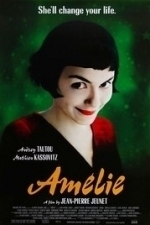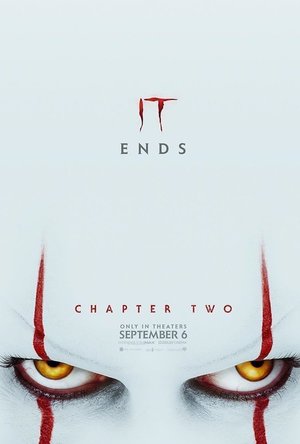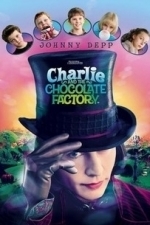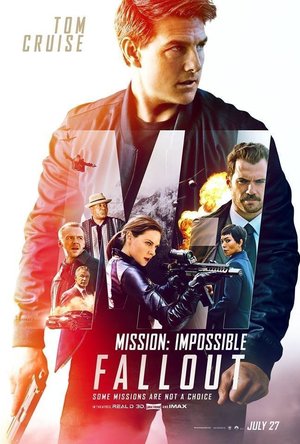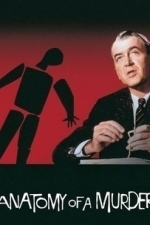Search
Search results
Phillip McSween (751 KP) rated Amélie (2001) in Movies
Sep 30, 2019
Beautiful Movie With a Beautiful Ending
You watch a film like Amelie and you leave thinking, “Some directors just have it figured out more than others.” This movie is pure genius from start to finish, one of my all-time faves for a number of reasons. In this story, Amelie seeks to change the world and make it a better place by helping the people around her.
Acting: 10
While I don’t know many of these actors since this a French film, I was impressed by the multitude of brilliant performances. Audrey Tautou shines as main character Amelie, carrying with her a sincere innocence that is hard not to gravitate towards. From the smaller roles, like Amelie’s parents, to the more pivotal roles, every actor/actress impressed me to no end.
Beginning: 10
Characters: 10
The movie revolves around Amelie’s sensational character. You are captivated by her from her very first moments on screen as a young child. She leads an interesting life that revolves around a number of interesting people. I know I’m being vague, but this is one of those films that’s best experienced when you know very little about it.
Cinematography/Visuals: 10
Conflict: 10
Entertainment Value: 10
Memorability: 10
A classic film is one that breaks the mold giving you something that you won’t find anywhere else. That is very much the case in Amelie as it carries a style all its own. The film is interwoven with grainy flashbacks that are uniquely done in unforgettable fashion. It is hard not to be captivated by these scenes as they unfold. I also appreciate how it dives into the challenges that shy introverts face on a daily basis.
Pace: 10
Plot: 10
Great story with enough diversions to keep you entertained throughout. It is such a simple idea, but is pulled off with complex characters and stories-within-stories. It’s almost disappointing when it ends.
Resolution: 10
Concludes just as it should. It gives you the ending that you hope for without overstaying its welcome. A nice bow on a beautiful present.
Overall: 100
We watch movies for an escape, to be captivated by something better than our own mundane lives. Amelie is magical from beginning to end and the greatest movie I never knew existed until recently. To put it simply, it is damn-near perfect.
Acting: 10
While I don’t know many of these actors since this a French film, I was impressed by the multitude of brilliant performances. Audrey Tautou shines as main character Amelie, carrying with her a sincere innocence that is hard not to gravitate towards. From the smaller roles, like Amelie’s parents, to the more pivotal roles, every actor/actress impressed me to no end.
Beginning: 10
Characters: 10
The movie revolves around Amelie’s sensational character. You are captivated by her from her very first moments on screen as a young child. She leads an interesting life that revolves around a number of interesting people. I know I’m being vague, but this is one of those films that’s best experienced when you know very little about it.
Cinematography/Visuals: 10
Conflict: 10
Entertainment Value: 10
Memorability: 10
A classic film is one that breaks the mold giving you something that you won’t find anywhere else. That is very much the case in Amelie as it carries a style all its own. The film is interwoven with grainy flashbacks that are uniquely done in unforgettable fashion. It is hard not to be captivated by these scenes as they unfold. I also appreciate how it dives into the challenges that shy introverts face on a daily basis.
Pace: 10
Plot: 10
Great story with enough diversions to keep you entertained throughout. It is such a simple idea, but is pulled off with complex characters and stories-within-stories. It’s almost disappointing when it ends.
Resolution: 10
Concludes just as it should. It gives you the ending that you hope for without overstaying its welcome. A nice bow on a beautiful present.
Overall: 100
We watch movies for an escape, to be captivated by something better than our own mundane lives. Amelie is magical from beginning to end and the greatest movie I never knew existed until recently. To put it simply, it is damn-near perfect.
LeftSideCut (3776 KP) rated It: Chapter Two (2019) in Movies
Sep 15, 2019 (Updated Oct 25, 2019)
If it ain't broke
The second chapter of the extremely popular reboot of Stephen King's It is more of the same...and that's a good thing.
The first film feels like a ghost train, with creepy imagery, and well crafted jump scares that don't feel too cheap.
Chapter Two takes the same formula, and if anything, actually does more with it. Pennywise seams more brutal and unforgiving in his ways this time around.
Bill Skarsgård once again is great as Pennywise, sinister, whilst remaining weirdly charming, and sometimes sympathetic.
The fantastic child actors from the first film are present once again via flashbacks, and are just as likable, but as the bulk of Chapter Two is set 27 years later, these characters are now grown up and played by a whole host of incredibly well casted adults.
Bill Hader in particular is a highlight throughout. I always have time for James McAvoy as well, the guy is an hugely underrated actor.
The scares arrive thick and fast after a slow start where we're reintroduced to everyone - and they are mixed...some are genuinely unsettling (as is the tone for a lot of Chapter Two). The Paul Bunyun statue is a memorable moment, as is the creepy old lady scene from the trailers.
Some others are more tame, and some occasionally cartoony CGI take away from the scares themselves.
The climax of the film is pretty fun, as The Losers once again prepare to battle Pennywise, and it's once again, a truly memorable sequence.
The overall ending suffers slightly from Return of the King syndrome, and feels unessecarily drawn out at the end of an already lengthy film.
Another thing that didn't quite sit well with me was the opening scene - I understand that said scene is in the original novel, and it's a way of reintroducing us to Pennywise, but it felt out of place. Homophobia is still a huge issue in 2019, and there is nothing wrong with shouting about it. But the scene is cruel, and ultimately has no connection to the larger narrative.
Nevertheless, it's a very chilling and effective opening to the film.
The duo of new It films is modern horror done pretty well - unnerving and at times scary, whilst still being accessible to a wider audience.
Certainly worth watching them!
The first film feels like a ghost train, with creepy imagery, and well crafted jump scares that don't feel too cheap.
Chapter Two takes the same formula, and if anything, actually does more with it. Pennywise seams more brutal and unforgiving in his ways this time around.
Bill Skarsgård once again is great as Pennywise, sinister, whilst remaining weirdly charming, and sometimes sympathetic.
The fantastic child actors from the first film are present once again via flashbacks, and are just as likable, but as the bulk of Chapter Two is set 27 years later, these characters are now grown up and played by a whole host of incredibly well casted adults.
Bill Hader in particular is a highlight throughout. I always have time for James McAvoy as well, the guy is an hugely underrated actor.
The scares arrive thick and fast after a slow start where we're reintroduced to everyone - and they are mixed...some are genuinely unsettling (as is the tone for a lot of Chapter Two). The Paul Bunyun statue is a memorable moment, as is the creepy old lady scene from the trailers.
Some others are more tame, and some occasionally cartoony CGI take away from the scares themselves.
The climax of the film is pretty fun, as The Losers once again prepare to battle Pennywise, and it's once again, a truly memorable sequence.
The overall ending suffers slightly from Return of the King syndrome, and feels unessecarily drawn out at the end of an already lengthy film.
Another thing that didn't quite sit well with me was the opening scene - I understand that said scene is in the original novel, and it's a way of reintroducing us to Pennywise, but it felt out of place. Homophobia is still a huge issue in 2019, and there is nothing wrong with shouting about it. But the scene is cruel, and ultimately has no connection to the larger narrative.
Nevertheless, it's a very chilling and effective opening to the film.
The duo of new It films is modern horror done pretty well - unnerving and at times scary, whilst still being accessible to a wider audience.
Certainly worth watching them!
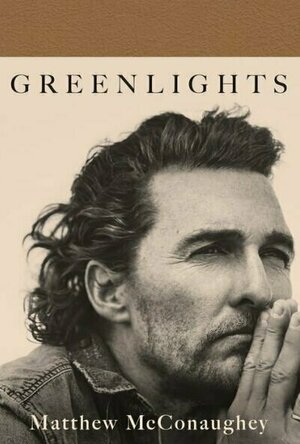
Greenlights
Book
From the Academy Award®–winning actor, an unconventional memoir filled with raucous stories,...

My Town : Cinema
Education and Entertainment
App
It’s My Town Movie Night! Enter the theater and buy a ticket for the movie you’d like to see....

City of Girls
Book
From the # 1 New York Times bestselling author of Eat, Pray, Love and The Signature of All Things, a...
TheFiend13420 (21 KP) rated Texas Chainsaw Massacre (2022) in Movies
Jun 2, 2022
Some inventive chainsaw massacr...ing (2 more)
Excellent Work by Leatherface Actor Mark Burnham
The Fucking Bus....
It's About Freaking Time!!!!!
Contains spoilers, click to show
I always go into a Chainsaw Massacre movie with as open of a mind as I can. Knowing full well, that the last few entries haven't been up to par.
Netflix....you beautiful bastards you...
From beginning to end, this film kept me going. I sat, literally on the edge of my chair the entire time. Waiting to see what this big, Momma face wearing Slasher would do next.
The first kill nearly made me spit out my Coke. I wasn't expecting such ferocity of the hop.
The writers making this a true after the first film sequel, did everything right in my book.
The cast, minus the lead, Sarah Yarkin, were not your basic, run into the basement kind of kids that have been cannon fodder for good ol' Leatherface in the past. They seemed as logical as they could for a bunch of 20 somethings fending off a once dormant serial killer, who has been woken by the death of his 'Mother'.
Yarkin, who was playing main character Melody, seemed to try and grasp hold of the Scream Queen crown left behind by prior Chainsaw Final Girls Marilyn Burns and Jessica Biel, but failed miserably. She is the one thing out of this movie that I just couldn't get in to.
And, I will admit. That ending. While waiting for the basic good old jump scare. I sat, clenching the sides of the chair I was in, waiting anxiously for it to come. And when it finally did. It did not disappoint.
Look out for a stand out preformance by Olwen Fouere, who plays the role of Sally Hardesty. The lone survivor of the original 1974 film. As well as Mark Burnham as Leatherface and Elsie Fisher as Lila, Mel's sister, and a survivor in her own right.
Texas Chainsaw Massacre was one of the first films in the horror genre that I ever seen. Leatherface will always hold a special place in my Dark little heart. And after some clusterfuck films in the series. It's nice to have one strike a chord and make me want more.
Netflix....you beautiful bastards you...
From beginning to end, this film kept me going. I sat, literally on the edge of my chair the entire time. Waiting to see what this big, Momma face wearing Slasher would do next.
The first kill nearly made me spit out my Coke. I wasn't expecting such ferocity of the hop.
The writers making this a true after the first film sequel, did everything right in my book.
The cast, minus the lead, Sarah Yarkin, were not your basic, run into the basement kind of kids that have been cannon fodder for good ol' Leatherface in the past. They seemed as logical as they could for a bunch of 20 somethings fending off a once dormant serial killer, who has been woken by the death of his 'Mother'.
Yarkin, who was playing main character Melody, seemed to try and grasp hold of the Scream Queen crown left behind by prior Chainsaw Final Girls Marilyn Burns and Jessica Biel, but failed miserably. She is the one thing out of this movie that I just couldn't get in to.
And, I will admit. That ending. While waiting for the basic good old jump scare. I sat, clenching the sides of the chair I was in, waiting anxiously for it to come. And when it finally did. It did not disappoint.
Look out for a stand out preformance by Olwen Fouere, who plays the role of Sally Hardesty. The lone survivor of the original 1974 film. As well as Mark Burnham as Leatherface and Elsie Fisher as Lila, Mel's sister, and a survivor in her own right.
Texas Chainsaw Massacre was one of the first films in the horror genre that I ever seen. Leatherface will always hold a special place in my Dark little heart. And after some clusterfuck films in the series. It's nice to have one strike a chord and make me want more.

Up In Smoke (Redwood Bay Fire #4)
Book
Love never quits RICO I’ve always had a soft spot for my best friend’s younger brother,...
TheDefunctDiva (304 KP) rated Charlie and the Chocolate Factory (2005) in Movies
Sep 27, 2017
C is for Candy
Contains spoilers, click to show
And yes, I certainly mean eye candy. Johnny Depp is gorgeous despite the makeup artists’ attempts to make him seem pale and awkward. My brain isn’t working properly due to lack of sleep so I’ll just go ahead and warn you that this is more a regurgitation than a review. Read at your own risk, because I even give the entire ending of the movie away…
This is the story of Charlie Bucket, an impoverished but genuinely good-natured child. His dream is one of millions: to win a Golden Ticket, and tour Willy Wonka’s chocolate factory in the hopes of obtaining an even bigger prize. If this plot sounds familiar, it’s because you’ve seen Willy Wonka and the Chocolate Factory, or have read the book. I profess my ignorance, for I haven’t read the book Roald Dahl wrote, and therefore have no idea which movie version adheres more strictly to the original text.
Let’s move on by more closely examining Burton’s version. Despite some of the world’s most recalcitrant children winning the four other tickets, Charlie lucks out and becomes the recipient of the last Golden Ticket. This brings great joy to his family and even makes the bed-ridden Grandpa Joe ambulatory again. I love Charlie’s family, especially because his Dad works in a toothpaste factory but everyone in the family has nasty teeth.
The glorious day of the tour arrives and each child shows up with a parental or grandparental guardian. They are introduced first to Willy Wonka by means of a puppet show, which ends in a glorious and unintentional fire. With the smoldering puppets dying disturbingly in the background, Wonka appears with cue cards, giving the impression that the man has no idea how to socially interact. The group then enters the factory.
The first child to be eliminated from the contest is Augustus Gloop. The group has been given free reign of a room made entirely of candy. Augustus cannot resist the lake of chocolate, and he falls in. He is sucked up a tube that leads to the fudge room. Then the Oompa Loompas appear and perform a song engineered for this particular predictable tragedy.
The Oompa Loompas in Burton’s version are short, and they do not have orange hair, but they all have the same face and body. Deep Roy, the actor portraying the Oompa Loompas, deserved an Oscar for effort in my book, for the special features indicate how very involved he was with this production. The songs sung by the Oompa Loompas varied significantly from those in the older version. In fact, I enjoyed how each song of admonishment involved a specific genre of music.
Next Violet Beauregard, the competitive one, is turned into a blueberry by chewing gum. And then we have the case of the sad and supremely spoiled Veruca Salt, who ends up getting thrown down a garbage chute by some very judgmental and highly trained squirrels. After each young lady has been expelled from the contest, the Oompa Loompas say adieu with a musical number.
Throughout the film, Wonka has flashbacks about his father. It seems the elder Wonka was a dentist, and he forbade the young Willy to eat candy. Several scenes show Willy Wonka defying the will of his father, which ultimately led Willy to be a world-renowned chocolatier. Though it was nice to have this subplot as an explanation for some of Wonka’s erratic behavior, I found that I like Gene Wilder’s portrayal of Willy Wonka better. He was whimsical and strange, but the film and the actor seemed to offer no explanation as to how he got that way.
Mike Teavee, a young boy with the attention span of a gnat on amphetamines, is the last of the factory’s victims. He decides to teleport himself into a television screen, which I’m sure seemed like a good idea at the time. Teavee is shown in peril as an Oompa Loompa flips the channels. Now incredibly small, Wonka decides that the best remedy for Mike is the taffy pulling machine.
Charlie is the only child left, and Wonka ushers Charlie and Grandpa Joe into the glass elevator. According to the button, they are going up and out. Indeed, they do, eventually stopping when they crash through the roof of the Bucket house. The grand prize is revealed: Willy Wonka is giving Charlie the factory. This becomes impossible when Wonka forces Charlie to choose between factory and family. Eventually, Wonka reconciles his Daddy issues and allows Charlie’s family to stay at the factory.
The visual effects in this film were amazing. As mentioned previously, Deep Roy was incredible as the face of the many Oompa Loompas. I thought the child actors in this film were also impressive in how they perfectly captured their respective vices. Overall, this was a good film. And yet I still miss moments from the older film, especially the poem with “the grisly reaper mowing.” Call me sentimental…
This is the story of Charlie Bucket, an impoverished but genuinely good-natured child. His dream is one of millions: to win a Golden Ticket, and tour Willy Wonka’s chocolate factory in the hopes of obtaining an even bigger prize. If this plot sounds familiar, it’s because you’ve seen Willy Wonka and the Chocolate Factory, or have read the book. I profess my ignorance, for I haven’t read the book Roald Dahl wrote, and therefore have no idea which movie version adheres more strictly to the original text.
Let’s move on by more closely examining Burton’s version. Despite some of the world’s most recalcitrant children winning the four other tickets, Charlie lucks out and becomes the recipient of the last Golden Ticket. This brings great joy to his family and even makes the bed-ridden Grandpa Joe ambulatory again. I love Charlie’s family, especially because his Dad works in a toothpaste factory but everyone in the family has nasty teeth.
The glorious day of the tour arrives and each child shows up with a parental or grandparental guardian. They are introduced first to Willy Wonka by means of a puppet show, which ends in a glorious and unintentional fire. With the smoldering puppets dying disturbingly in the background, Wonka appears with cue cards, giving the impression that the man has no idea how to socially interact. The group then enters the factory.
The first child to be eliminated from the contest is Augustus Gloop. The group has been given free reign of a room made entirely of candy. Augustus cannot resist the lake of chocolate, and he falls in. He is sucked up a tube that leads to the fudge room. Then the Oompa Loompas appear and perform a song engineered for this particular predictable tragedy.
The Oompa Loompas in Burton’s version are short, and they do not have orange hair, but they all have the same face and body. Deep Roy, the actor portraying the Oompa Loompas, deserved an Oscar for effort in my book, for the special features indicate how very involved he was with this production. The songs sung by the Oompa Loompas varied significantly from those in the older version. In fact, I enjoyed how each song of admonishment involved a specific genre of music.
Next Violet Beauregard, the competitive one, is turned into a blueberry by chewing gum. And then we have the case of the sad and supremely spoiled Veruca Salt, who ends up getting thrown down a garbage chute by some very judgmental and highly trained squirrels. After each young lady has been expelled from the contest, the Oompa Loompas say adieu with a musical number.
Throughout the film, Wonka has flashbacks about his father. It seems the elder Wonka was a dentist, and he forbade the young Willy to eat candy. Several scenes show Willy Wonka defying the will of his father, which ultimately led Willy to be a world-renowned chocolatier. Though it was nice to have this subplot as an explanation for some of Wonka’s erratic behavior, I found that I like Gene Wilder’s portrayal of Willy Wonka better. He was whimsical and strange, but the film and the actor seemed to offer no explanation as to how he got that way.
Mike Teavee, a young boy with the attention span of a gnat on amphetamines, is the last of the factory’s victims. He decides to teleport himself into a television screen, which I’m sure seemed like a good idea at the time. Teavee is shown in peril as an Oompa Loompa flips the channels. Now incredibly small, Wonka decides that the best remedy for Mike is the taffy pulling machine.
Charlie is the only child left, and Wonka ushers Charlie and Grandpa Joe into the glass elevator. According to the button, they are going up and out. Indeed, they do, eventually stopping when they crash through the roof of the Bucket house. The grand prize is revealed: Willy Wonka is giving Charlie the factory. This becomes impossible when Wonka forces Charlie to choose between factory and family. Eventually, Wonka reconciles his Daddy issues and allows Charlie’s family to stay at the factory.
The visual effects in this film were amazing. As mentioned previously, Deep Roy was incredible as the face of the many Oompa Loompas. I thought the child actors in this film were also impressive in how they perfectly captured their respective vices. Overall, this was a good film. And yet I still miss moments from the older film, especially the poem with “the grisly reaper mowing.” Call me sentimental…
The Chairport (1 KP) rated Mission: Impossible - Fallout (2018) in Movies
Aug 4, 2018
Real action (3 more)
Real stunts
Fantastically scored
Beautiful locations and cinematography
Pay the admission, accept this mission!
(Review from www.thechairport.com)When the Mission Impossible film franchise started it had a slightly rocky start. After a great first film, the second film fell short of the mark. Watching those first two films now you can see how different they are to the Mission we know now. Ever since the second Mission film, ever since JJ Abrams and the Bad Robot team took over, the Mission franchise has been ageing like a fine wine. Actually, it’s been ageing like Tom Cruise. Fallout, the sixth film in the Mission franchise is the best yet and easily one of the best action films of all time and it’s all thanks to its real action.
Mission Impossible: Fallout follows Ethan Hunt as he and his crew lose some plutonium they are trying to recover. The bad guys trying to use the plutonium are The Apostles, a spin-off group from Rogue Nation’s Syndicate. This time the IMF team are joined by a ruthless CIA agent, Walker played by Henry Cavill, who is there to ensure that the team retrieve the plutonium. The bad guys this time around, The Apostles, follow Solomon Lane’s thinking that to get peace the world must first experience a great suffering. With that line ringing throughout the IMF’s ears, the team is off on a race against time to stop The Apostles.
Fallout is filled with action and as far as action movies come, this film really takes the cake. Tom Cruise is just the man that everyone wants to be, as in he really seems like he can do anything. In the current state of cinema any other filmmaking team would’ve made this film with CGI effects all over yet Cruise and Fallout’s director, Christopher McQuarrie, have decided to do everything for real and it’s that element alone that makes the film.
There are moments in Fallout where you just sit there astonished by what you’re seeing happen in front of you. You feel shivers and the need to applause at the opening ten minutes of the film, your eye’s dash across the screen as you’re watching Cruise’s Ethan Hunt race through oncoming traffic in Paris and you’ll find yourself simply flabbergasted as you watch Cruise do anything at all in the helicopter sequence that you’ve definitely already heard about.
Mission Impossible: Fallout isn’t just simply an insane action blockbuster, it is more than that. Every actor on the screen knows that what they’re in is going to be something revolutionary for cinema and every actor really pulls their weight. Simon Pegg’s comedy is on point, Alec Baldwin’s acting as someone in charge is as good as ever, Henry Cavill being absolutely brutal is scary and cool at the same time. Fallout also has a good amount of female characters in it with Rebecca Ferguson and Michelle Monaghan bringing a lot of well-needed emotion and Vanessa Kirby’s Black Widow bringing a funny yet creepy vibe to the whole occasion.
The story is fairly simple as McQuarrie doesn’t want to isolate the audience, you can definitely see it if you haven’t seen other Mission Films. It’s McQuarrie and his team’s filmmaking that really make the film what it is. The cameraman who does the HALO jump with Tom Cruise deserves many awards and I would be surprised if the film, and its team, didn’t win any awards for filmmaking. If you’ve got free time too then look up how the film was made because it is quite interesting. I mean it’s rare that an action blockbuster would even be nominated but as of right now Fallout is my favourite film of the year, both for how good it is and then researching how it was made. People just don’t put in as much effort as the Mission team have done in films anymore.
Mission Impossible: Fallout is a must-see film. It’s a long film but never really feels like it. It’s a constant chase that will keep you on the edge of your seat and it has twists and turns that you won’t see coming. I was recently reading about how Christopher Nolan wanted The Dark Knight to bring back film instead of everyone filming digitally. Fallout sings a similar message and but its message is for real-life stunts. Mquarrie has evolved in a similar manner to how Nolan evolved between Batman Begins and The Dark Knight. Fallout gave me similar vibes of excitement and intensity and Fallout will leave its mark on you, I’m not sure how I’ll feel watching CGI action from now on. All I know is that making everything real instead of fake isn’t impossible but to repeat the magic that Fallout has, well that’s only something the Mission team can do. Mission accomplished Cruise, mission accomplished.
Score: 5/5
Mission Impossible: Fallout follows Ethan Hunt as he and his crew lose some plutonium they are trying to recover. The bad guys trying to use the plutonium are The Apostles, a spin-off group from Rogue Nation’s Syndicate. This time the IMF team are joined by a ruthless CIA agent, Walker played by Henry Cavill, who is there to ensure that the team retrieve the plutonium. The bad guys this time around, The Apostles, follow Solomon Lane’s thinking that to get peace the world must first experience a great suffering. With that line ringing throughout the IMF’s ears, the team is off on a race against time to stop The Apostles.
Fallout is filled with action and as far as action movies come, this film really takes the cake. Tom Cruise is just the man that everyone wants to be, as in he really seems like he can do anything. In the current state of cinema any other filmmaking team would’ve made this film with CGI effects all over yet Cruise and Fallout’s director, Christopher McQuarrie, have decided to do everything for real and it’s that element alone that makes the film.
There are moments in Fallout where you just sit there astonished by what you’re seeing happen in front of you. You feel shivers and the need to applause at the opening ten minutes of the film, your eye’s dash across the screen as you’re watching Cruise’s Ethan Hunt race through oncoming traffic in Paris and you’ll find yourself simply flabbergasted as you watch Cruise do anything at all in the helicopter sequence that you’ve definitely already heard about.
Mission Impossible: Fallout isn’t just simply an insane action blockbuster, it is more than that. Every actor on the screen knows that what they’re in is going to be something revolutionary for cinema and every actor really pulls their weight. Simon Pegg’s comedy is on point, Alec Baldwin’s acting as someone in charge is as good as ever, Henry Cavill being absolutely brutal is scary and cool at the same time. Fallout also has a good amount of female characters in it with Rebecca Ferguson and Michelle Monaghan bringing a lot of well-needed emotion and Vanessa Kirby’s Black Widow bringing a funny yet creepy vibe to the whole occasion.
The story is fairly simple as McQuarrie doesn’t want to isolate the audience, you can definitely see it if you haven’t seen other Mission Films. It’s McQuarrie and his team’s filmmaking that really make the film what it is. The cameraman who does the HALO jump with Tom Cruise deserves many awards and I would be surprised if the film, and its team, didn’t win any awards for filmmaking. If you’ve got free time too then look up how the film was made because it is quite interesting. I mean it’s rare that an action blockbuster would even be nominated but as of right now Fallout is my favourite film of the year, both for how good it is and then researching how it was made. People just don’t put in as much effort as the Mission team have done in films anymore.
Mission Impossible: Fallout is a must-see film. It’s a long film but never really feels like it. It’s a constant chase that will keep you on the edge of your seat and it has twists and turns that you won’t see coming. I was recently reading about how Christopher Nolan wanted The Dark Knight to bring back film instead of everyone filming digitally. Fallout sings a similar message and but its message is for real-life stunts. Mquarrie has evolved in a similar manner to how Nolan evolved between Batman Begins and The Dark Knight. Fallout gave me similar vibes of excitement and intensity and Fallout will leave its mark on you, I’m not sure how I’ll feel watching CGI action from now on. All I know is that making everything real instead of fake isn’t impossible but to repeat the magic that Fallout has, well that’s only something the Mission team can do. Mission accomplished Cruise, mission accomplished.
Score: 5/5
BankofMarquis (1832 KP) rated Anatomy of a Murder (1959) in Movies
Nov 30, 2018
One of the Best Courtroom Dramas of all Time
I have to admit, that (at times) the fun part of going to "SECRET MOVIE NIGHT" is the anticipation of not knowing what the film is. Sometimes the film is "good, not great" (like THE BLUES BROTHERS, BODY HEAT and A FACE IN THE CROWD) and other times it is a CLASSIC (Like CITIZEN KANE, THE APARTMENT and NETWORK). I am happy to report that this month's installment IS a classic, our old pal Jimmy Stewart in 1959's ANATOMY OF MURDER.
Directed by the great Otto Preminger, AOM is often referred to as the finest courtroom drama ever filmed. While I need to give that some thought, I will say AOM is right up there as one of the finest examples of a courtroom drama.
Starring Jimmy Stewart as "country lawyer" Paul Biegler, who is brought in to defend Army Lieutenant Manion (Ben Gazzara). Manion is accused of murdering a man that raped his wife (Lee Remick). The central mystery isn't "did Manion kill the man" (he did), it is more of "did he kill his wife's rapist or lover" and "will Biegler get away with the temporary insanity plea".
This is the kind of plot that we've all seen a dozen times on standard TV shows, but back in 1959, this type of film - and trial - was quite new and fresh and this film was "scandalous" in it's use of frank language. Remember, this is 1959 in Eisenhower "Happy Days" Americana, so hearing words like "bitch, panties, penetration, slut, sperm, bitch and slut" was quite shocking and led to many protests of the film.
Those who were turned off by the language and frankhandling of the subject matter lost out on an intriguing, well-acted, well-written and well-directed courtroom drama, where the verdict is up in the air right up until the foreman of the jury says "We, the jury, find the defendant..."
Jimmy Stewart is perfectly cast in the lead role of Defense Attorney, Biegler. Stewart brings an instant likableness and every man integrity quality to the role. His Attorney is down-to-earth but whip-smart, able to crack a joke to lighten the mood or explode in rage at an affront at a moment's notice. He goes toe-to-toe with Prosecuting Attorney Claude Dancer (a VERY young George C. Scott). Dancer is everything that Biegler is not, crisp, well-polished and arrogant. While it would have been very easy to paint these two characters as good (Stewart) and bad (Scott), Director Preminger and screenwriter Wendell Mayes shy away from this and show these two as fierce competitors playing a very serious game of chess - and this works very well, indeed. Both Stewart and Scott were nominated for Oscars for their work as Best Actor and Supporting Actor respectively.
The Supporting cast is superb, featuring such 1950's/early 1960's stalwarts as Arthur O'Connell (also Oscar nominated as Stewarts's alcoholic law mentor), the always good Eve Arden, Orson Bean and Katherine Grant. It also features three character actors in small roles (witnesses in the trial) who you would recognize from other things - Murray Hamilton (the Mayor in Jaws), Howard McNear (Floyd the Barber from Mayberry) and Joseph Kearns (Mr. Wilson in Dennis the Menace).
Special notice needs to be made for Lee Remick as the sultry and flirtatious woman at the core of the film. Remick is superb in this role, and that is fortunate, for if she wasn't believable in the "would she or won't she" role that she is asked to play, then the film could have easily fallen apart. But the real bright spot in this film is the scene stealing Joseph N. Welch as the Judge in the case. His performance as the judge is the perfect "third leg" to the Stewart/Scott stool, balancing charm, folksiness and strength in even portions (depending on what is needed to balance the other two).
Otto Preminger (LAURA, STALAG 17) is a Director who's name is beginning to fade into the dust of the past - and that's too bad, for he is a strong director who knows how to frame a scene and pace a film. Even though AOM is 2 hours and 40 minutes of talking, it never feels long or slow.
Two other aspects of this film need to be mentioned - the "jazz" score by the great Duke Ellington (which won a grammy) is perfectly suited to the themes and mood of this film and the opening title sequence (and movie poster) is reminiscent of an Alfred Hitchock film - and that is because they are done by frequent Hitchock contributor Saul Bass.
Nominated for 7 Oscars (it won zero, falling to the juggernaut that was BEN HUR that year), ANATOMY OF A MURDER is an intriguing courtroom drama that also opens the door to performers of the past. Well worth the time investment, should you run across it (it is frequently shown on TCM).
Letter Grade: A
9 (out of 10) stars and you can take that to the Bank(ofMarquis)
Directed by the great Otto Preminger, AOM is often referred to as the finest courtroom drama ever filmed. While I need to give that some thought, I will say AOM is right up there as one of the finest examples of a courtroom drama.
Starring Jimmy Stewart as "country lawyer" Paul Biegler, who is brought in to defend Army Lieutenant Manion (Ben Gazzara). Manion is accused of murdering a man that raped his wife (Lee Remick). The central mystery isn't "did Manion kill the man" (he did), it is more of "did he kill his wife's rapist or lover" and "will Biegler get away with the temporary insanity plea".
This is the kind of plot that we've all seen a dozen times on standard TV shows, but back in 1959, this type of film - and trial - was quite new and fresh and this film was "scandalous" in it's use of frank language. Remember, this is 1959 in Eisenhower "Happy Days" Americana, so hearing words like "bitch, panties, penetration, slut, sperm, bitch and slut" was quite shocking and led to many protests of the film.
Those who were turned off by the language and frankhandling of the subject matter lost out on an intriguing, well-acted, well-written and well-directed courtroom drama, where the verdict is up in the air right up until the foreman of the jury says "We, the jury, find the defendant..."
Jimmy Stewart is perfectly cast in the lead role of Defense Attorney, Biegler. Stewart brings an instant likableness and every man integrity quality to the role. His Attorney is down-to-earth but whip-smart, able to crack a joke to lighten the mood or explode in rage at an affront at a moment's notice. He goes toe-to-toe with Prosecuting Attorney Claude Dancer (a VERY young George C. Scott). Dancer is everything that Biegler is not, crisp, well-polished and arrogant. While it would have been very easy to paint these two characters as good (Stewart) and bad (Scott), Director Preminger and screenwriter Wendell Mayes shy away from this and show these two as fierce competitors playing a very serious game of chess - and this works very well, indeed. Both Stewart and Scott were nominated for Oscars for their work as Best Actor and Supporting Actor respectively.
The Supporting cast is superb, featuring such 1950's/early 1960's stalwarts as Arthur O'Connell (also Oscar nominated as Stewarts's alcoholic law mentor), the always good Eve Arden, Orson Bean and Katherine Grant. It also features three character actors in small roles (witnesses in the trial) who you would recognize from other things - Murray Hamilton (the Mayor in Jaws), Howard McNear (Floyd the Barber from Mayberry) and Joseph Kearns (Mr. Wilson in Dennis the Menace).
Special notice needs to be made for Lee Remick as the sultry and flirtatious woman at the core of the film. Remick is superb in this role, and that is fortunate, for if she wasn't believable in the "would she or won't she" role that she is asked to play, then the film could have easily fallen apart. But the real bright spot in this film is the scene stealing Joseph N. Welch as the Judge in the case. His performance as the judge is the perfect "third leg" to the Stewart/Scott stool, balancing charm, folksiness and strength in even portions (depending on what is needed to balance the other two).
Otto Preminger (LAURA, STALAG 17) is a Director who's name is beginning to fade into the dust of the past - and that's too bad, for he is a strong director who knows how to frame a scene and pace a film. Even though AOM is 2 hours and 40 minutes of talking, it never feels long or slow.
Two other aspects of this film need to be mentioned - the "jazz" score by the great Duke Ellington (which won a grammy) is perfectly suited to the themes and mood of this film and the opening title sequence (and movie poster) is reminiscent of an Alfred Hitchock film - and that is because they are done by frequent Hitchock contributor Saul Bass.
Nominated for 7 Oscars (it won zero, falling to the juggernaut that was BEN HUR that year), ANATOMY OF A MURDER is an intriguing courtroom drama that also opens the door to performers of the past. Well worth the time investment, should you run across it (it is frequently shown on TCM).
Letter Grade: A
9 (out of 10) stars and you can take that to the Bank(ofMarquis)
